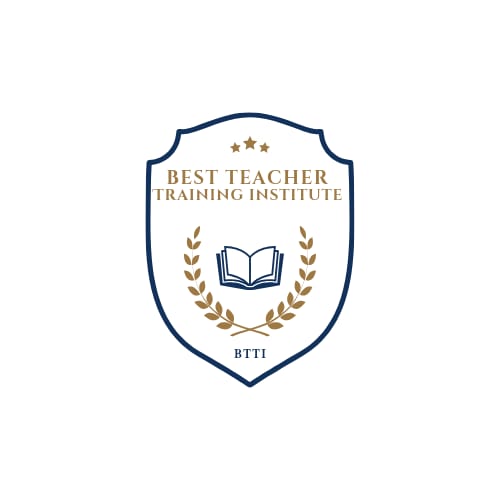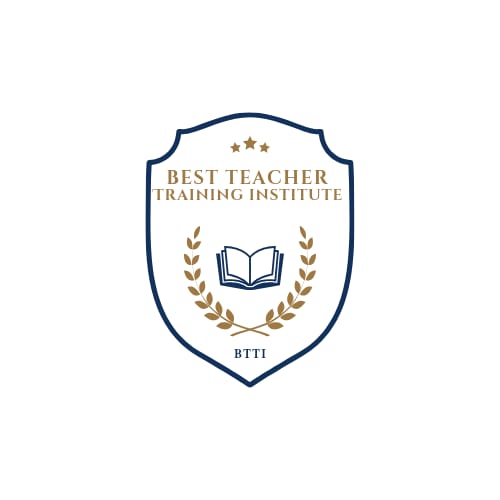Early Childhood Care and Education Course
Best Teacher Training Institute
Contact us +91-9833119953
The Early Childhood Education certification program in Mumbai, offered by the Best Teacher Training Institute (BTTI), is designed to :
1. Train students after passing 12th to become teachers.
2. Teach them important skills to become fully & completely trained early childhood educators.
3. To handle any kind of situation in the classroom
4. To deliver their lessons expertly.
5. To start their own preschools..ie open their own kindergarten business.
About the Course
BTTI offers a clear and concise early childhood education course in Mumbai, online and offline. The ECCE course from BTTI prepares students to understand and support young learners aged 2-8 years. The ECCE course provides complete information on teaching children. Become a class teacher, or a homeroom teacher, a centre head or an administrator to learn step by step the method of early childhood education and enhancing aspiring educators' ability to effectively teach and nurture young children.
Key Information of the ECCE Course in Mumbai
Course Specializations
Candidates enrolling in the Early Years Care and Education Classroom Learning course may also choose to specialize in one or more areas, including:
● English Language Teaching
● Classroom Management
● Education Management
● Early Years Care
These specialisations allow candidates to refine their teaching skills and expand their knowledge in specific areas relevant to early childhood education.
Eligibility: Minimum qualification of 10+2
Duration: 12 months
Course Fee: 41,900 INR (instalments available)
ECCE Syllabus
1. Meaning & Significance of Ecce
2. Early Childhood in India
3. Needs and Rights of Children
4. ECCE Policies, Schemes and Programmes in India
5. Issues and Directions in ECCE
6. Growth and development.
7. Domains of Development
8. Stages of Child Development.
9. Prenatal and Birth to Three Years
10. Stages of Child Development.
11. Play and Early Learning.
12. Planning Developmentally Appropriate ECCE Curriculum.
13. How Children Learn.
14. Methods of Child Study.
15. Profile of an ECCE Centre.
16. Administration and Management of ECCE Centre.
17. Qualities and Role of an ECCE Teacher.
18. Involvement of Parents and Community.
19. Smooth Transitions.
20. Understanding Diversity Inclusion.
21. Concept and Practices.
22. Early Identification and Intervention.
Admission Requirements:
To complete your registration, please submit the following documents:
1. Filled application form
2. Recent self-photo
3. Payment receipt (G-Pay/Bank transfer)
4. 12th/Graduation mark sheet
Payment Details:
You can make the payment via:
G-Pay
Bank Transfer
Cash
Course Requirements:
To complete the course, students must:
1. Attend 30 online lectures
2. Write answers to exam questions
3. Record and submit 7 lesson demonstrations
4. Complete art assignments (in-class or at home using video tutorials)
Exam Submission:
To submit your exam:
1. Write answers to questions provided in the Word folder
2. Send the completed Word folder via email to
3. Record and send 7 demos via Telegram app
Demo Topics:
Choose one topic from each category:
1. Alphabet
2. Storytelling
3. Number recognition
4. Hindi topics (or 3 GK/EVS topics)
Email:
Please confirm once you've submitted the required documents and payment.
Job Prospects
Early childhood educator
Preschool and kindergarten teacher
Head teacher
Centre administrator
Director
Administrator
Manager
Daycare teacher
Government childcare
Special needs teacher
Paediatrics hospitals
Child development departments
Educational NGOs
Independent consultancy
Entrepreneurs. Open your own school.
The course also benefits individuals aiming to become early childhood curriculum developers, course coordinators, or consultants, and those interested in opening a pre-school.
Accreditation and Certification
ECCEd Certificate is issued by NSDC (National Skill Development Corporation) NSDC is under the Ministry of Skill Development & Entrepreneurship (MSDE), Govt. of India
Explain about ECCE
What is ECCE?
ECCE stands for Early Childhood Care and Education, focusing on the comprehensive development of children from birth to eight years. Through a blend of play-based activities and structured learning experiences, ECCE nurtures children's physical, emotional, social, cognitive, and creative skills, forming a solid foundation for lifelong learning and well-being.
Who Can Pursue ECCE?
ECCE courses are ideal for individuals passionate about working with young children and possess qualities such as empathy, patience, and energy. Prospective candidates should be attentive to children's unique needs, supporting their health, nutrition, and educational requirements.
Why ECCE?
UNESCO defines ECCE as the "holistic development of a child’s social, emotional, cognitive, and physical needs in order to build a solid foundation for lifelong learning and well-being." Research shows that ECCE supports brain development and offers significant long-term social and economic benefits.
Nursery Teacher Training Course
The Nursery Teachers’ Training (NTT) course is a diploma program designed for individuals aiming to teach preschool or nursery-level students. Focused on modern teaching methodologies, the NTT course emphasizes the moral, intellectual, physical, and social development of young children. It prepares teachers to meet the developmental needs of preschoolers, offering specialized training essential for nurturing the cognitive and social growth of young learners.
The NTT curriculum includes subjects such as instructional strategies, child psychology, classroom management, and cognitive development. These subjects are aligned with both national and international standards, reflected in the course fees across various institutions. This course equips teachers with the skills needed to clearly communicate fundamental concepts to young minds and build a strong educational foundation.
NTT graduates have specific career opportunities, such as Nursery In-charge, Nursery Teacher, or Nursery Department Coordinator. Additionally, diploma holders can pursue further studies in fields like a Master's in Teacher Training (TT), PG in Preschool or Primary School Teacher Training, or directly enter teaching roles in schools and preschools.
Career Prospects for NTT Diploma Holders. NTT diploma holders can find roles in nurseries, pre-primary schools, or even in colleges, training future nursery teachers. They can also work as Nursery Teachers, In-charge, Nursery Managers, Assistant Pre-primary Teachers, NTT/B.Ed. Teachers, and even as Home Tutors. Salary levels depend on various factors, including location (urban vs. rural), experience, and type of institution. International schools tend to offer higher salaries, though experienced teachers generally earn more.
FAQs
What is the full form of NTT? NTT stands for Nursery Teacher Training, a diploma course for aspiring nursery teachers.
What qualifications are required for a nursery teacher? The minimum eligibility for NTT is passing the 10+2 board exams with at least 50% marks from a recognized institution in any subject.
What is the yearly cost of NTT courses? The fees typically range from Rs 5,000 to 25,000, depending on the institute.
Pre-Primary Teacher Training Course
The Pre-Primary Teacher Training Course prepares individuals to teach young children aged 2-12 years. This course provides essential knowledge and skills in child development, teaching methodology, classroom management, child psychology, language development, art, music, drama, storytelling, rhymes, and songs. Many programs also include supervised teaching practice in pre-primary classrooms.
Upon completion, graduates can work in roles such as pre-primary teachers in public and private schools, early childhood education centers, and preschools.
Qualities of an Effective Pre-Primary Teacher
Passion for education: A strong desire to teach and help children reach their full potential.
Patience: An ability to manage children's questions, emotions, and demands calmly.
Creativity: Skill in creating engaging activities and stories that facilitate learning.
Communication skills: Ability to engage young learners and develop their listening skills.
Love for children: Genuine interest in working with children and fostering a nurturing environment.
Flexibility: Adaptable teaching methods to meet each child’s unique learning needs.
Organizational skills: Ability to manage classroom activities, maintain schedules, and track student progress.
Empathy: A compassionate approach to understanding and supporting children's emotional needs.
Online Preschool Teacher Training Courses
For those interested in online learning, we offer a list of highly recommended online preschool teacher training courses. These programs are designed for both beginners and experienced educators, covering child development, effective teaching strategies, and classroom management. Learning online allows you to progress at your own pace, making it a flexible option for those balancing other commitments.
Obtaining a preschool teacher certificate enhances your career prospects and equips you to create a safe, engaging learning environment. Our recommended online courses offer flexible learning options, helping you unlock your full potential as a skilled and dedicated preschool teacher.
Value of Certification
The certificates provided through these courses are accredited by reputable institutions and recognized by the National Skill Development Corporation (NSDC) and the Government of India.



